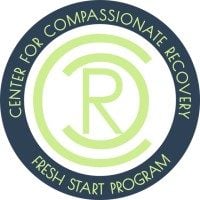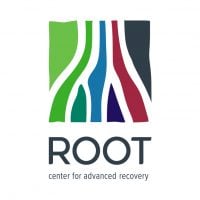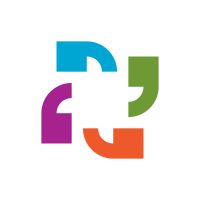SE Council on Alc and Drug Dep (SCADD)/Intensive Outpatient
Drug Rehab Center in New London, Connecticut
The Southeastern Council on Alcoholism and Drug Dependency (SCADD) in New London, Connecticut offers a comprehensive Intensive Outpatient Program (IOP) for individuals struggling with substance use disorder, providing individualized treatment plans, counseling, education, family therapy, relapse prevention, cognitive behavioral therapy, 12-step principles, medical monitoring, peer support, and access to necessary resources for lasting recovery.
About This New London, CT Facility
The Southeastern Council on Alcoholism and Drug Dependency (SCADD) in New London, Connecticut is a community-based nonprofit organization dedicated to the prevention and treatment of substance use challenges. SCADD's Intensive Outpatient Program (IOP) is an evidence-based treatment option that emphasizes individualized care and recovery. The IOP is designed as a comprehensive and comprehensive approach to substance use disorder, offering comprehensive assessments, individual and group counseling, education, family therapy, and relapse prevention.
The SCADD IOP is designed to help individuals struggling with substance use disorder achieve and maintain a substance-free life. Through individualized treatment plans, clients are offered a variety of evidence-based interventions and supports such as cognitive behavioral therapy, 12-step principles, and medical monitoring. Clients also receive relapse prevention education and receive referrals to further treatment services, if needed. In addition, peer support and family services are provided to help build a strong support system.
SCADD is certified by the Connecticut Departments of Mental Health and Addiction Services and is a member of the National Association of Addiction Treatment Providers. The organization has also been recognized as a Quality Service Provider by the National Council on Quality Care, and is committed to providing the highest quality of care to all clients in the New London area. SCADD also works with local organizations to provide referrals to medically supervised detoxification services, residential treatment programs, and other necessary resources to ensure clients have access to the care needed for a lasting recovery.
Genders
Ages
Modality
Additional
Conditions and Issues Treated
Substance abuse refers to the intensive and inappropriate use of psychoactive substances. Psychoactive substances are those that affect brain function. These include illegal drugs, alcohol, and even the excessive use of prescription drugs. The overuse of psychoactive substances leads to severe physical or psychological dependence. It also affects the social life and relationships of the affected individual. Substance abuse is treatable.
The duration of treatment at SE Council on Alc and Drug Dep (SCADD)/Intensive Outpatient in New London can require weeks or even months depending on the severity of the condition as there is a risk of relapse. Treatment options include medications, counseling sessions, various types of behavioral therapy, and group therapy in different combinations.
Addiction to prescription opioid painkillers like oxycodone and hydrocodone, and illicit opioids such as heroin, leads to potentially life-threatening withdrawal symptoms when discontinued. Opioid addiction treatment typically involves an inpatient stay at facilities like SE Council on Alc and Drug Dep (SCADD)/Intensive Outpatient to make sure they get through withdrawal safely. Treatment also includes comprehensive mental health counseling.
Mental illness includes conditions such as anxiety, depression, schizophrenia, bipolar disorder. It can also happen that mental illness causes drug addiction and vice versa. SE Council on Alc and Drug Dep (SCADD)/Intensive Outpatient in Connecticut knows it is vital to diagnose dual diagnosis or co-occurring disorder.
Levels of Care Offered
This center offers a variety of custom treatment tailored to individual recovery. Currently available are Aftercare Support, Drug Rehab, Dual-Diagnosis, Intensive Outpatient, Outpatient, with additional therapies available as listed below.
Daily trips to the hospital that provides the treatment include intensive outpatient services (IOP). IOP in Connecticut is appropriate for patients in residential recovery facilities that have been diagnosed with addiction. Patients return to their everyday lives gradually, increasing the likeliness of success in treatment.
To assist with alcohol or opioid abuse, or a co-occurring condition, SE Council on Alc and Drug Dep (SCADD)/Intensive Outpatient offers an outpatient treatment program. For their rehabilitation and other services, the Connecticut patient will go to the treatment center, yet return home every night. After most of the program is completed, the level of mandatory participation reduces.
Treatment is just a first step in sustaining sobriety. After rehabilitation, counseling for aftercare helps the person adapt to a life without drugs. A sober living facility in New London, job therapy, or educational assistance may be included in this service, managed by SE Council on Alc and Drug Dep (SCADD)/Intensive Outpatient. This is when a preventive strategy for relapse starts to take shape.
SE Council on Alc and Drug Dep (SCADD)/Intensive Outpatient‘s Therapies & Programs
In addiction recovery at SE Council on Alc and Drug Dep (SCADD)/Intensive Outpatient, therapy plays a significant role. This helps patients get to the root of their addiction and discover how the problems that contributed to their use can be handled better. Therapy can be performed in a group and one on one settings. The patient interacts with the therapist in a one-on-one atmosphere during individual therapy. This encourages them to reflect on the underlying addiction problems and develop ways to avoid potential future abuse.
Addiction and alcoholism affect the entire family. For this reason, family therapy is vital to a person’s recovery from addiction. In contrast to couples counseling, family therapy at SE Council on Alc and Drug Dep (SCADD)/Intensive Outpatient may include siblings, children, parents, and other significant people in the recovering person’s life. Family support is one of the most important pillars of recovery.
Many people turn to drugs and alcohol as a way of processing trauma that has affected them in the past. Trauma can include abuse, neglect, the loss of a loved one and other unpleasant incidents. Trauma therapy at SE Council on Alc and Drug Dep (SCADD)/Intensive Outpatient helps patients process trauma. It gives them the tools to deal with it in a healthier manner.
Dialectical behavioral therapy (DBT) is a type of Cognitive Behavioral Therapy that focuses on eliminating specific negative thoughts such as suicidal thoughts that can potentially lead to an individual inflicting self-harm. It is useful in the treatment of patients exhibiting uncontrollable emotions, intense mood swings, and borderline personality disorders.
The term “Dialectic” means the integration of opposites. In the substance abuse context, DBT refers to accepting the patient’s addiction and working to change their thoughts and behavior. It improves life skills such as controlling the intense emotions without reacting impulsively, resolving the interpersonal conflicts effectively, and promoting awareness about self and others.
Cognitive Behavioral Therapy (CBT) examines the relationship between a patient’s thoughts, feelings and behaviors. SE Council on Alc and Drug Dep (SCADD)/Intensive Outpatient aims to establish a healthy response to thoughts and feelings as an alternative to turning to drugs and alcohol. It also promotes healthy communication between addicts and those around them. It is and effective therapy for people suffering with all types of addictions.
Rational Emotive Behavior Therapy (REBT) is a type of cognitive therapy. It is based on the principle that irrational thoughts are responsible for the emotional and behavioral changes in addiction. So, the therapy starts with identifying the underlying irrational thoughts. These thoughts are then challenged and opposed logically and then replaced with positive thoughts. It also helps to change unwanted behavior with techniques such as meditation.
By imparting positive thoughts and emotions, Rational Emotive Behavior Therapy (REBT) makes the individual self-reliant with a capacity to handle the emotional and behavioral issues in future by themselves without professional help. This self-dependence benefits the patients and prevent relapses.
Life skills pertain to the skill sets a person should possess to become successful in life. Examples are time management, budgeting, and social abilities. Life skills therapy highlights the fact that addiction recovery is more than just a person’s ability to go through their day-to-day without resorting to substance use in New London, CT once they leave the facility.
The recovery technique used by Alcoholics Anonymous is the 12 step program, but it can relate to any form of addiction. The 12 steps that addicts must take on the road to recovery are explained. Measures include acknowledging that you have a problem and agreeing to turn around your life. The curriculum, instructed by SE Council on Alc and Drug Dep (SCADD)/Intensive Outpatient, also requires a belief in a greater power and making amends to others.
Contingency Management (CM), also called motivational incentives, is a type of pure behavioral therapy. It’s based on the idea that behavior is shaped, motivated, or controlled by its outcomes. CM is a clinical application at SE Council on Alc and Drug Dep (SCADD)/Intensive Outpatient of operant conditioning, which helps clients eliminate unwanted behaviors by the use of positive and negative reinforcement.
Payment Options Accepted
For specific insurance or payment methods please contact us.
Additional Details
Specifics, location, and helpful extra information.
New London, Connecticut 6320 Phone Number(860) 437-2383 Meta DetailsUpdated November 25, 2023
Staff Verified
Patient Reviews
There are no reviews yet. Be the first one to write one.
New London, Connecticut Addiction Information
Connecticut has a higher rate of substance abuse and addiction than the national average. The state ranks in the top 10 in the country for illicit drug dependence among those ages 18 to 25. In 2010, there were 9,211 people admitted to an alcohol treatment facility for alcohol abuse combined with a secondary drug. Connecticut ranked fifth in the United States of America for the number of fatalities involving drunk driving in 2014.
The use of drugs and alcohol is a major problem in New London, Connecticut. Since 1999, there have been more than 1,000 drug overdoses in the city. The number of people using marijuana has increased by 50% since 2013. About 15% of drug users in New London are under the age of 18. Some common types of treatment include detoxification, residential, and outpatient treatment.
Treatment in Nearby Cities
- Winsted, CT (63.2 mi.)
- East Canaan, CT (76.2 mi.)
- Brookfield, CT (68.0 mi.)
- Shelton, CT (51.1 mi.)
- New Britain, CT (40.9 mi.)
Centers near SE Council on Alc and Drug Dep (SCADD)/Intensive Outpatient
The facility name, logo and brand are the property and registered trademarks of SE Council on Alc and Drug Dep (SCADD)/Intensive Outpatient, and are being used for identification and informational purposes only. Use of these names, logos and brands shall not imply endorsement. RehabNow.org is not affiliated with or sponsored by SE Council on Alc and Drug Dep (SCADD)/Intensive Outpatient.
/Intensive%20Outpatient%20in%20New%20London%20Connecticut.png)






